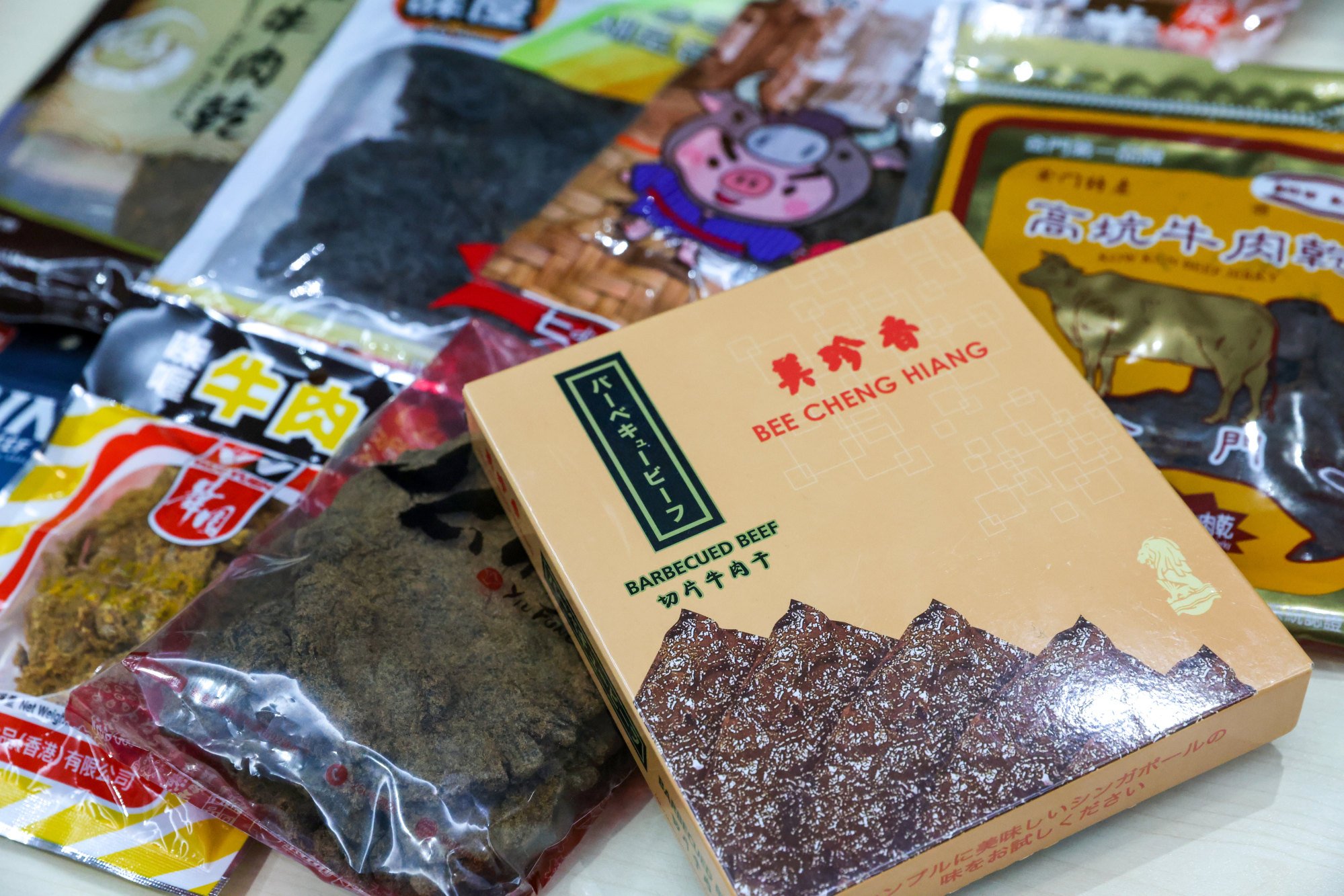
Possible carcinogen found in nearly half of 30 dried meat snack samples tested by Hong Kong consumer watchdog
- Banned veterinary drug detected in pork crisps from popular Thai brand, Consumer Council reveals
- Council finds potentially carcinogenic contaminant in 13 samples of dried beef and pork snacks
Hong Kong’s consumer watchdog has found contaminants in nearly half of 30 dried meat snack samples, with a banned veterinary drug detected in pork crisps from a popular Thai brand.
The Consumer Council on Wednesday said it had found potentially carcinogenic polycyclic aromatic hydrocarbons (PAHs) in 13 of the tested samples.
Popular Thai brand Lim Jing Hieng’s crispy sliced pork contained 0.95 micrograms per kg of furazolidone metabolite, an antimicrobial agent commonly used in veterinary medicine, but banned for animals bred for food in regions such as mainland China, the European Union and the United States.

The city’s food regulations on harmful substances said furazolidone should not be detected in the muscle, liver and kidneys of cattle, pigs and poultry.
“There is no internationally recognised acceptable daily intake level. For the sake of caution, the council recommends consumers avoid consuming foods detected with furazolidone metabolites,” Victor Lui Wing-cheong, the council’s research and testing committee vice-chairman, said.
He added the results had been passed on to the Centre for Food Safety for further action.
The centre, however, said it had not detected any problems with the samples.
Council chief executive Gilly Wong Fung-hang said there was no contradiction in both parties’ findings.
“We put forward the result and of course [the centre] has to test the samples independently again and it turned out it passed its standards,” she said.
“International organisations have not yet been able to set a tolerable intake for human beings on a daily basis. If you’re really conscious about your health, this is what we recommend.”
A spokeswoman from King Shun Trading, one of the distributors of Lim Jin Hieng products in Hong Kong, said it had forwarded the council’s test results to the company in Thailand.
“We’re not the only distributor here. The sample the council bought in the market happened to be distributed by us. We don’t know much about the manufacturing process so we simply talked to people at Lim Jing Hieng in Thailand after the council approached us,” she said.

The watchdog also urged manufacturers to be more vigilant about monitoring the safety of raw materials and to step up testing to ensure their products complied with Hong Kong regulatory requirements.
The findings also showed PAHs were found in more than 40 per cent of the samples, including nine pork and four beef jerky snacks.
Levels of four PAHs ranged from 0.6mcg/kg to 18.2mcg/kg.
Bee Chang Hiang Barbecued Beef Bak Kwa had the highest amount of four PAHs at 18.2mcg/kg – which exceeded the EU limit of 12mcg/kg by more than 50 per cent.
“Consumers should also think twice before consuming dried meat snacks and other barbecued meats, and remove burnt parts before consumption to reduce the intake of PAHs,” Lui said.
Bee Chang Hiang’s distributor said the test showed benzo[a]pyrene, one of the PAHs detected in the product, was inside the EU’s limit and added the company made the dried meat through barbecuing to maintain traditional flavours.
The centre said it was impossible to determine the level of PAHs that could lead to carcinogenicity.

